Find Help
More Items From Ergsy search
-
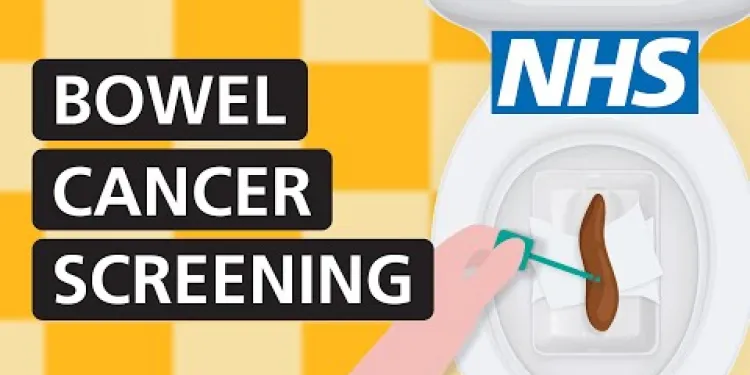
How to use the bowel cancer screening FIT kit | NHS
Relevance: 100%
-
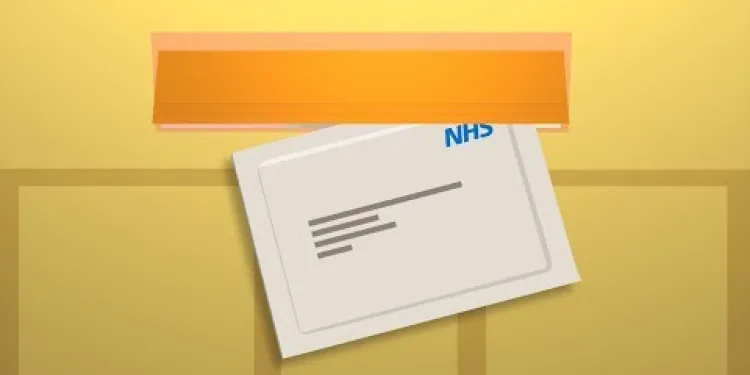
How to do the FIT bowel cancer screening test | Cancer Research UK
Relevance: 94%
-
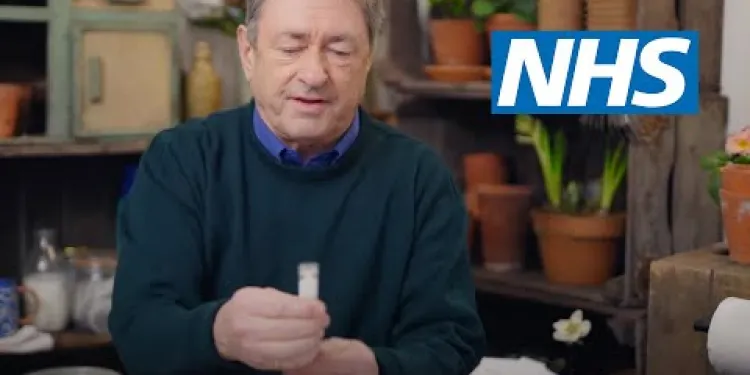
Bowel cancer screening: Alan Titchmarsh and Tommy Walsh | NHS
Relevance: 67%
-

What are the recommendations for colorectal cancer screening?
Relevance: 60%
-

What is Bowel Cancer?
Relevance: 58%
-

How does increased screening impact bowel cancer statistics?
Relevance: 58%
-

Can I order a FIT test online?
Relevance: 55%
-

Can bowel cancer be prevented?
Relevance: 54%
-
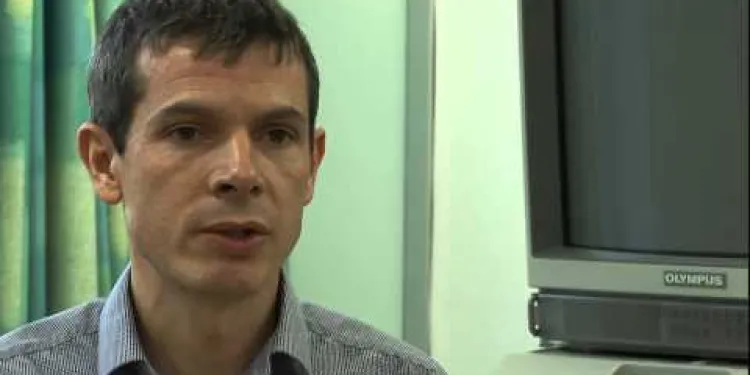
Bowel cancer - Symptoms and signs to look out for
Relevance: 53%
-

How is bowel cancer diagnosed?
Relevance: 53%
-

Why is there a surge in bowel cancer?
Relevance: 52%
-

How common is bowel cancer?
Relevance: 51%
-
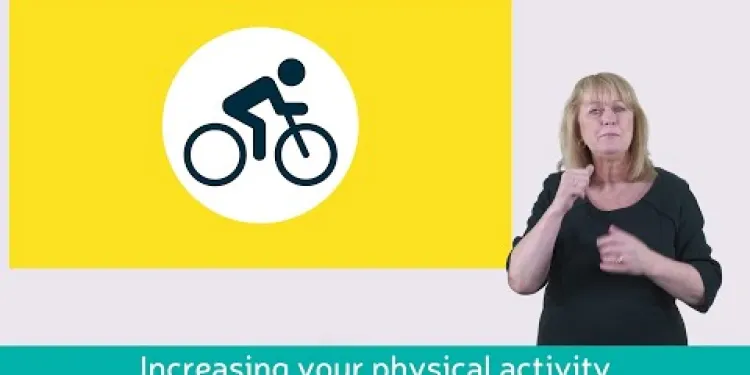
Learn about bowel cancer (British Sign Language version)
Relevance: 49%
-

What is cancer screening?
Relevance: 49%
-
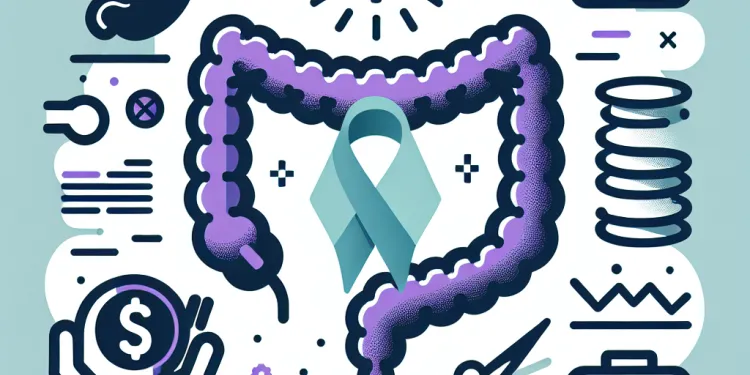
What is the survival rate for bowel cancer?
Relevance: 48%
-

How can I test myself for colorectal cancer?
Relevance: 48%
-

How often should I perform a home colorectal cancer test?
Relevance: 46%
-

Are younger people being diagnosed with bowel cancer more frequently?
Relevance: 46%
-
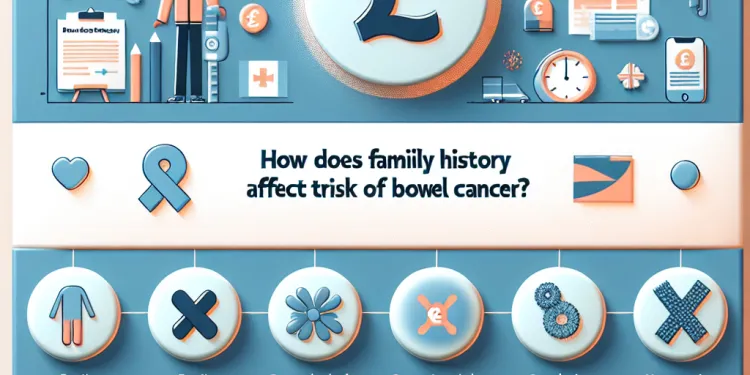
How does family history affect the risk of bowel cancer?
Relevance: 46%
-
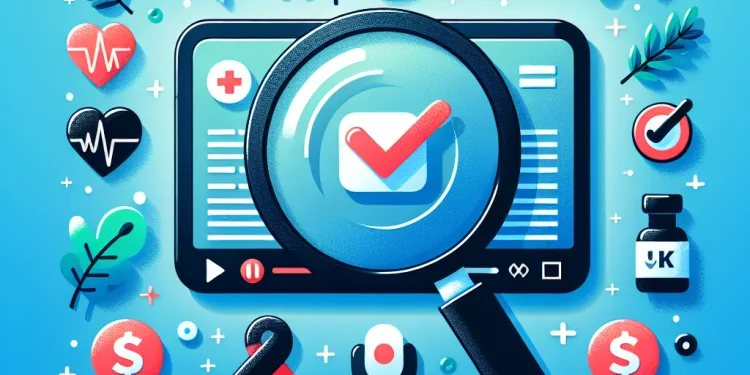
Health Screenings You Should Know About
Relevance: 46%
-
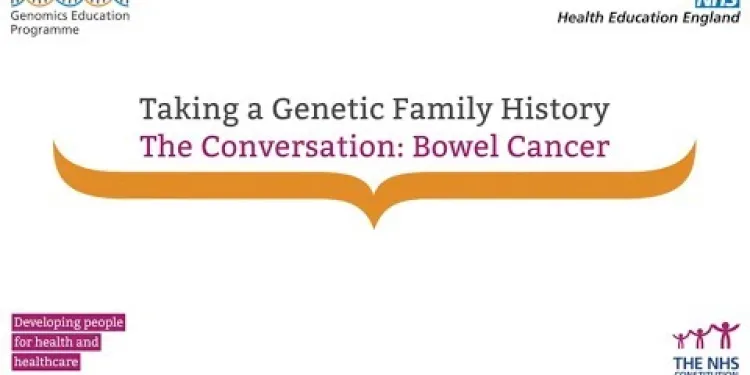
Taking a Genetic Family History - The Conversation (Bowel Cancer)
Relevance: 46%
-

What factors are contributing to the increase in bowel cancer cases?
Relevance: 45%
-
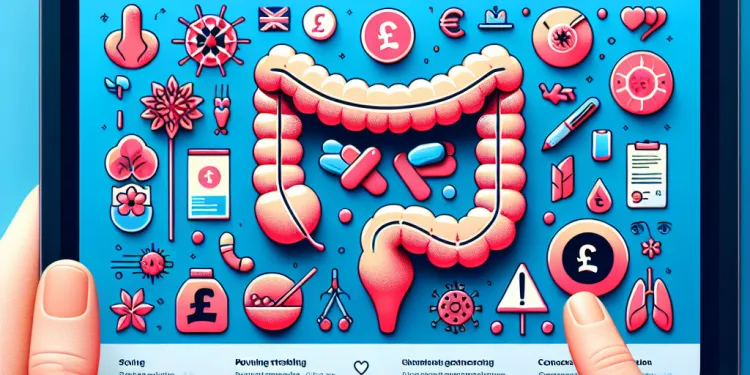
What are the risk factors for bowel cancer?
Relevance: 45%
-
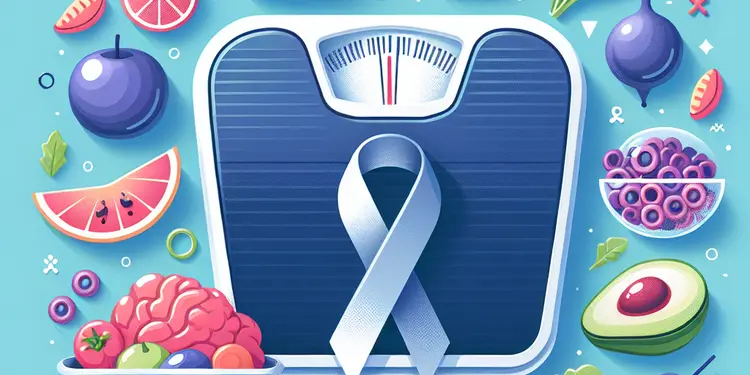
How does obesity affect bowel cancer rates?
Relevance: 44%
-

What types of exercise are beneficial for bowel cancer patients?
Relevance: 44%
-

Is diet linked to the rise in bowel cancer?
Relevance: 44%
-

Can bowel cancer spread to other parts of the body?
Relevance: 43%
-

What lifestyle changes can help lower the risk of bowel cancer?
Relevance: 43%
-

What kinds of cancer screening are available?
Relevance: 43%
-

Can lifestyle changes help reduce bowel cancer risk?
Relevance: 43%
-

Are there specific benefits of exercise for bowel cancer survivors?
Relevance: 42%
-

Bowel Cancer
Relevance: 42%
-

What treatment options are available for bowel cancer?
Relevance: 42%
-

How is the stage of bowel cancer determined?
Relevance: 40%
-

AI Breast Cancer Screening in the UK
Relevance: 40%
-

Can exercise help slow down the progression of bowel cancer?
Relevance: 39%
-
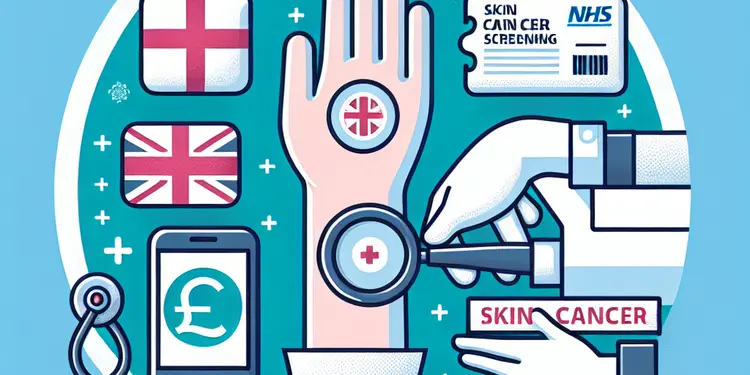
What is a skin cancer screening?
Relevance: 38%
-

How does exercise impact bowel cancer progression?
Relevance: 38%
-

What are the side effects of bowel cancer treatment?
Relevance: 38%
-

What support is available for individuals diagnosed with bowel cancer?
Relevance: 38%
What is a bowel cancer screening test kit?
A bowel cancer screening test kit, also known as a fecal occult blood test (FOBT) or fecal immunochemical test (FIT), is a simple at-home test designed to detect hidden blood in the stool, which can be an early sign of bowel cancer or other bowel conditions.
Here's how a typical bowel cancer screening test kit works:
- Kit Contents: The kit usually contains everything needed to collect a small sample of stool at home. This may include a collection stick or brush, a sample collection tube or card, and instructions for use.
- Sample Collection: The individual collects a small sample of their stool using the collection stick or brush provided in the kit. The sample is usually obtained by wiping the stick or brush across the surface of the stool.
- Sample Application: The collected stool sample is then applied to a specific area on the sample collection tube or card, following the instructions provided in the kit. This may involve transferring the sample onto a designated section of the card or inserting the stick or brush into the collection tube.
- Return: Once the sample has been collected and applied to the collection device, the individual typically returns the completed kit by mail or to a designated drop-off location, as instructed in the kit.
- Laboratory Analysis: The collected stool sample is then analyzed in a laboratory to detect the presence of blood. In some cases, newer tests such as fecal immunochemical tests (FIT) may be used, which specifically detect human blood proteins, providing more accurate results.
- Results: After analysis, the individual will receive the results of the screening test. A negative result indicates that no blood was detected in the stool sample, while a positive result suggests the presence of blood and may warrant further investigation, such as additional diagnostic tests or a follow-up colonoscopy.
Bowel cancer screening test kits are recommended as part of national bowel cancer screening programs in many countries, including the UK, Australia, and several European countries. These programs aim to detect bowel cancer at an early stage when it is more treatable and may offer screening to eligible individuals within certain age groups. It's important for individuals to participate in bowel cancer screening programs as recommended by their healthcare providers to help detect bowel cancer early and improve treatment outcomes.
How to Use the Bowel Cancer Screening FIT Kit | NHS
Understanding the FIT Kit
The Fecal Immunochemical Test (FIT) is a simple and effective way to screen for bowel cancer. It is offered free by the NHS to individuals between the ages of 60 and 74 in the UK. The test is designed to detect tiny amounts of blood in your stool which could indicate the early stages of bowel cancer or other conditions.Receiving Your FIT Kit
You will receive your FIT kit by post. The kit includes a sample bottle, instructions, and a prepaid return envelope. Make sure you carefully read the provided instructions before starting the test. It’s crucial to complete the test and return it promptly to ensure timely results.Collecting Your Stool Sample
1. **Prepare for Sample Collection**: Make sure you have everything you need close by, including the sample bottle and paper to catch the stool. 2. **Catch the Stool**: Use the paper provided to catch your stool before it touches the water in the toilet. This will make collecting the sample easier and ensures it remains uncontaminated. 3. **Collect the Sample**: Open the sample bottle and use the stick attached to its cap to take small samples from different parts of the stool. Insert the stick back into the bottle and close it tightly.Returning the FIT Kit
Place the completed sample bottle into the prepaid envelope and seal it securely. Post it as soon as possible, ideally on the same day. The NHS will analyze your sample and send you the results within a few weeks.Interpreting Your Results
The results will either show no signs of blood or indicate the presence of blood. If blood is detected, it doesn’t necessarily mean you have cancer, but further tests will be required. You will be contacted for a follow-up appointment to discuss the next steps.Why Regular Screening Matters
Bowel cancer screening using the FIT kit can detect problems at an early stage before symptoms develop, making treatment more effective. Regular screening is crucial for early diagnosis and greatly improves the chances of successful treatment. Make sure to participate in regular screening and encourage others to do the same. By following these steps, you can effectively use the FIT kit and contribute to your health and wellbeing. If you have any questions, don’t hesitate to contact your GP or the NHS Bowel Cancer Screening Helpline.What is a Bowel Cancer Screening Test Kit?
A bowel cancer screening test kit helps check for signs of bowel cancer. It is a simple test you can do at home. The test looks for tiny amounts of blood in your poo. This can be an early sign of bowel cancer or other problems.
Here is how a bowel cancer screening test kit works:
- What's in the Kit: The kit comes with everything you need. You will find a stick or brush for collecting your poo, a tube or card to put it on, and easy instructions.
- Collect the Sample: Use the stick or brush to take a small bit of your poo. You should gently wipe the stick or brush over the poo to collect the sample.
- Put the Sample on the Card or Tube: Follow the instructions to put your sample on the card or in the tube. This might mean putting the sample on a special part of the card or putting the stick or brush into the tube.
- Send it Back: Once you have taken the sample, you send the kit back in the mail or take it to a drop-off place. The kit will include instructions on how to do this.
- Check in the Lab: Your sample goes to a lab where they check for blood. Some tests, called FIT, are very good at finding human blood in the poo.
- Get the Results: You will get the results after the lab checks your sample. If no blood is found, that's a negative result. If blood is found, that's a positive result. If the result is positive, you may need more tests or a colonoscopy.
Bowel cancer screening test kits are used in many countries. This includes the UK, Australia, and some other places in Europe. These tests help find bowel cancer early, when it can be treated more easily. It is important to take part in these tests if your doctor suggests it. Catching bowel cancer early can help make treatments work better.
How to Use the Bowel Cancer Screening FIT Kit | NHS
Understanding the FIT Kit
The FIT Kit is a simple test to check for bowel cancer. The NHS gives it to people aged 60 to 74 in the UK for free. The test looks for small amounts of blood in your poo. This could show early signs of bowel cancer or other problems.Receiving Your FIT Kit
You will get the FIT Kit in the mail. You will find a small bottle, instructions, and an envelope to send it back. Read the instructions carefully before you start. It is important to do the test and send it back quickly to get your results on time.Collecting Your Stool Sample
1. **Get Ready**: Have everything you need, like the sample bottle and paper to catch your poo. 2. **Catch Your Poo**: Use the paper in the kit to catch your poo before it touches the water. This helps you collect the sample more easily. 3. **Take the Sample**: Open the bottle and use the stick on the cap to take small bits from different parts of the poo. Put the stick back in the bottle and close it tight.Returning the FIT Kit
Put the bottle with the sample in the envelope. Seal it well and send it back as soon as you can, best on the same day. The NHS will check your sample and send you the results in a few weeks.Interpreting Your Results
Your results will either show no blood or some blood. If there is blood, it doesn't mean you have cancer, but you will need more tests. You will get an appointment to talk about what to do next.Why Regular Screening Matters
Using the FIT Kit regularly can find problems early, before you feel sick. This makes treatment work better if needed. Go for regular screening, and remind others to do it too. By doing these steps, you can use the FIT kit and help keep yourself healthy. If you have questions, talk to your doctor or call the NHS Bowel Cancer Screening Helpline.Frequently Asked Questions
What is the FIT kit used for?
The FIT kit is used for bowel cancer screening. It detects small amounts of blood in your stool that may indicate the presence of abnormal growths or cancer.
How do I get a FIT kit?
You will receive a FIT kit through the post if you are eligible for bowel cancer screening. The NHS sends these kits to individuals aged 60-74 every two years.
What should I do if I didn't receive my FIT kit?
If you have not received your FIT kit, you can call the bowel cancer screening helpline at 0800 707 60 60 to request a new one.
Can I get a FIT kit if I am under 60 years old?
FIT kits are generally sent to individuals aged 60-74. If you are under 60 and experiencing symptoms or have a higher risk, consult your GP to discuss your options.
How do I use the FIT kit?
Follow the instructions provided in the kit. It involves collecting a small stool sample using the provided stick and returning it in the supplied container for testing.
How do I collect a stool sample?
Use the collection paper provided to catch your stool, then use the stick provided in the FIT kit to collect a small sample. Place the sample in the sample container and seal it.
Do I need any special preparation before using the FIT kit?
No special preparation is needed. You can eat and drink normally before collecting your stool sample.
How soon should I return the sample?
It’s best to return the sample as soon as possible after collection. Use the pre-paid envelope provided to send it to the laboratory.
Will I receive results from the FIT test?
Yes, you will receive your results by post within two weeks of sending your sample. Results will indicate whether further investigation is needed.
What do the FIT test results mean?
A 'normal' result means no blood was detected. An 'abnormal' result indicates blood was found, and further tests might be necessary to determine the cause.
What should I do if my test result is abnormal?
If your result is abnormal, you will be contacted by a specialist screening practitioner to discuss further tests, such as a colonoscopy.
Can I use the FIT kit if I have hemorrhoids?
Yes, you can still use the FIT kit. However, if you are bleeding heavily from hemorrhoids, it might affect the result. Contact the screening helpline for advice.
Are there any side effects of using the FIT kit?
There are no side effects of using the FIT kit. It is a simple, non-invasive test to collect a stool sample.
Is the FIT kit free of charge?
Yes, the FIT kit provided by the NHS is free for eligible individuals as part of the bowel cancer screening programme.
What should I do if I lose the FIT kit instructions?
If you lose the instructions, you can contact the bowel cancer screening helpline at 0800 707 60 60 for guidance or access the instructions online on the NHS website.
What do you use the FIT kit for?
The FIT kit is something people use to check for signs of bowel cancer. It looks for tiny bits of blood in your poo that you can't see. This helps doctors find cancer early and make sure you stay healthy.
Here are some tools that might help:
- Ask a friend or family member to help you if it’s tricky to understand.
- Use pictures or videos about FIT kits to learn more.
The FIT kit helps check for bowel cancer. It looks for tiny bits of blood in your poop. This blood could be a sign of lumps or cancer.
How can I get a FIT kit?
A FIT kit is a test to check if you might have bowel problems.
Here's how you can get one:
- Ask your doctor: Your doctor can give you a FIT kit. They will explain how to use it.
- Call the hospital: You can call your local hospital. They can help you get a FIT kit.
- Look online: Some places let you order a FIT kit on their website.
If you find reading hard, ask someone to help you. You can also use a computer or phone to read the text out loud. There are apps and tools that can help with this.
If you can have a bowel cancer check, you will get a FIT kit in the mail. The NHS sends these kits to people who are 60 to 74 years old every two years.
What if I don't get my FIT kit?
If you don't get your FIT kit, here are some things you can do:
- Check the mail again. Sometimes it takes extra time to arrive.
- Ask someone in your house if they saw it.
- If it's still not there, call your doctor or nurse for help.
- You can also use a phone or computer to contact the place that sends the kits.
Ask a family member or friend to help you if it's hard to call or use a computer.
If you did not get your FIT kit, you can call for help. Use this phone number: 0800 707 60 60. They will send you a new one.
Can I get a FIT kit if I am younger than 60?
If you are younger than 60, you might not get a FIT kit. FIT kits are usually for people who are 60 or older. But you can talk to your doctor for advice. You can also ask someone you trust to help you understand.
FIT kits are sent to people who are 60 to 74 years old. If you are younger than 60 and feel unwell or think you might be at higher risk, talk to your doctor. They can help you with what to do next.
How can I use the FIT kit?
The FIT kit helps you check your health. Here is how to use it:
- Take the kit: Open the package and take out the kit.
- Use the stick: Follow the pictures in the kit to know how to use the stick.
- Put the stick back: After you use it, put the stick back in the tube.
- Send it: Use the box to send your kit back. You can ask someone to help you with this.
If you need help, ask a friend, family member, or doctor. Pictures in the kit can also help you understand.
Read the instructions in the kit. You need to collect a small poo sample with the stick in the kit. Then, put it in the container and send it back for testing.
How can I collect a poop sample?
Use the paper you get to catch your poo. Then take the stick from the kit to get a small bit of your poo. Put it in the container and close it tight.
What do I need to do before using the FIT kit?
Before you use the FIT kit, you don't need to do anything special. Here are some tips to help you:
- Read the instructions that come with the kit.
- Ask someone for help if you find the instructions hard to understand.
- Use tools like reading rulers to see the words more clearly.
You do not need to do anything special to get ready. You can eat and drink like you usually do before you take your poo sample.
When should I send back the sample?
Send back the sample as soon as you can. It is best to do it quickly.
Here are some tips to help:
- Ask someone to help you remember.
- Use a calendar to mark the date.
- Set an alarm or reminder on your phone.
It is important to send the sample back quickly after you collect it. Use the envelope with paid postage that came with the sample to send it to the lab.
Will I get results from the FIT test?
Yes, you will get your FIT test results. Here are some tips to help you understand them:
- Ask someone you trust to explain the results to you.
- Use pictures or diagrams if that helps make things clearer.
- Take your time to understand the information. It's okay to ask questions.
Yes, you will get your results in the mail. This will happen about two weeks after you send your sample. The results will tell you if you need to do more tests.
What do the FIT test results mean?
The FIT test looks for hidden blood in your poo. This is to check if there might be signs of cancer.
If the test finds blood, it doesn't always mean you have cancer. But you should talk to a doctor. They might want to do more tests.
If the test does not find blood, that's good. It means there is no sign of blood in your poo. But if you have any worries, you can still talk to a doctor.
It is always a good idea to understand your test results. You can ask someone to help you read the results. You can also use a magnifier or read out loud to understand better.
A 'normal' result means there is no blood. An 'abnormal' result means there is blood, and more tests might be needed to find out why.
Here are some ways to understand this better:
- Ask a friend or family member to help explain it.
- Use reading tools like audio books to hear the information.
- Break down big words into smaller parts to make them easier to read.
What to do if your test result is not normal?
Sometimes, test results are not what we expect. If your test says something is wrong, do not worry too much. Here is what you can do:
- Talk to your doctor or nurse. They can explain what the test means.
- Ask questions. It’s okay to ask many questions until you understand.
- Take someone with you to the appointment. They can help you remember what the doctor says.
- Write down what the doctor tells you. This will help you remember.
- Follow the doctor’s advice. They will tell you what to do next.
Remember, doctors are there to help you and keep you healthy!
If your test result is not normal, a doctor who knows about these tests will talk to you. They will tell you if you need more tests, like looking inside your tummy with a special camera called a colonoscopy.
Can I use the FIT kit if I have hemorrhoids?
If you have hemorrhoids, you might still be able to use the FIT kit. But, you should talk to your doctor first.
Hemorrhoids can sometimes bleed. This might change the test results.
Here is how to be safe and sure:
- Ask your doctor if you can use the FIT kit with hemorrhoids.
- If you see blood, tell your doctor.
- Use the FIT kit carefully. Follow all the instructions.
If you need help using the FIT kit, ask someone you trust, like a friend or family member, to assist you.
Yes, you can still use the FIT kit. But if you have a lot of bleeding from piles, it might change the result. Call the screening helpline for help.
Does the FIT kit cause any side effects?
The FIT kit is safe to use. It does not cause any problems. It is an easy test that collects a poo sample.
Here are some tips that might help:
- Take your time and read each step carefully.
- Ask someone you trust to help you if needed.
- You can watch videos online to see how to do the test.
Can I get the FIT kit for free?
Yes, the NHS gives the FIT kit for free to people who need it. It is part of the plan to check for bowel cancer.
What to do if I lose the FIT kit instructions?
If you lose the FIT kit instructions:
- Don't worry, you can still use the kit.
- Ask someone you trust to help you.
- You can call for help. Use the phone number on the kit box.
- Check the website for more information.
Tools to help you:
- You can use a magnifying glass to read small text.
- Reading tools can read instructions out loud for you.
If you lose the instructions, you can call the bowel cancer screening helpline. The phone number is 0800 707 60 60. They can help you. You can also find the instructions on the NHS website.
Useful Links
This website offers general information and is not a substitute for professional advice.
Always seek guidance from qualified professionals.
If you have any medical concerns or need urgent help, contact a healthcare professional or emergency services immediately.
Some of this content was generated with AI assistance. We’ve done our best to keep it accurate, helpful, and human-friendly.
- Ergsy carfully checks the information in the videos we provide here.
- Videos shown by Youtube after a video has completed, have NOT been reviewed by ERGSY.
- To view, click the arrow in centre of video.
- Most of the videos you find here will have subtitles and/or closed captions available.
- You may need to turn these on, and choose your preferred language.
- Go to the video you'd like to watch.
- If closed captions (CC) are available, settings will be visible on the bottom right of the video player.
- To turn on Captions, click settings .
- To turn off Captions, click settings again.
More Items From Ergsy search
-

How to use the bowel cancer screening FIT kit | NHS
Relevance: 100%
-

How to do the FIT bowel cancer screening test | Cancer Research UK
Relevance: 94%
-

Bowel cancer screening: Alan Titchmarsh and Tommy Walsh | NHS
Relevance: 67%
-

What are the recommendations for colorectal cancer screening?
Relevance: 60%
-

What is Bowel Cancer?
Relevance: 58%
-

How does increased screening impact bowel cancer statistics?
Relevance: 58%
-

Can I order a FIT test online?
Relevance: 55%
-

Can bowel cancer be prevented?
Relevance: 54%
-

Bowel cancer - Symptoms and signs to look out for
Relevance: 53%
-

How is bowel cancer diagnosed?
Relevance: 53%
-

Why is there a surge in bowel cancer?
Relevance: 52%
-

How common is bowel cancer?
Relevance: 51%
-

Learn about bowel cancer (British Sign Language version)
Relevance: 49%
-

What is cancer screening?
Relevance: 49%
-

What is the survival rate for bowel cancer?
Relevance: 48%
-

How can I test myself for colorectal cancer?
Relevance: 48%
-

How often should I perform a home colorectal cancer test?
Relevance: 46%
-

Are younger people being diagnosed with bowel cancer more frequently?
Relevance: 46%
-

How does family history affect the risk of bowel cancer?
Relevance: 46%
-

Health Screenings You Should Know About
Relevance: 46%
-

Taking a Genetic Family History - The Conversation (Bowel Cancer)
Relevance: 46%
-

What factors are contributing to the increase in bowel cancer cases?
Relevance: 45%
-

What are the risk factors for bowel cancer?
Relevance: 45%
-

How does obesity affect bowel cancer rates?
Relevance: 44%
-

What types of exercise are beneficial for bowel cancer patients?
Relevance: 44%
-

Is diet linked to the rise in bowel cancer?
Relevance: 44%
-

Can bowel cancer spread to other parts of the body?
Relevance: 43%
-

What lifestyle changes can help lower the risk of bowel cancer?
Relevance: 43%
-

What kinds of cancer screening are available?
Relevance: 43%
-

Can lifestyle changes help reduce bowel cancer risk?
Relevance: 43%
-

Are there specific benefits of exercise for bowel cancer survivors?
Relevance: 42%
-

Bowel Cancer
Relevance: 42%
-

What treatment options are available for bowel cancer?
Relevance: 42%
-

How is the stage of bowel cancer determined?
Relevance: 40%
-

AI Breast Cancer Screening in the UK
Relevance: 40%
-

Can exercise help slow down the progression of bowel cancer?
Relevance: 39%
-

What is a skin cancer screening?
Relevance: 38%
-

How does exercise impact bowel cancer progression?
Relevance: 38%
-

What are the side effects of bowel cancer treatment?
Relevance: 38%
-

What support is available for individuals diagnosed with bowel cancer?
Relevance: 38%


